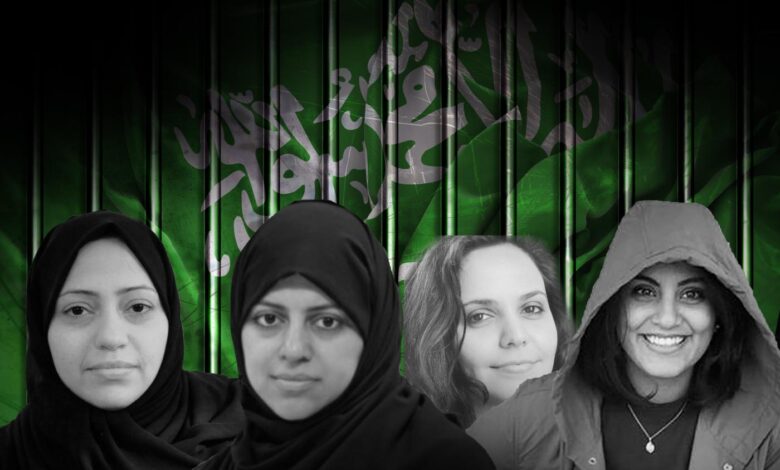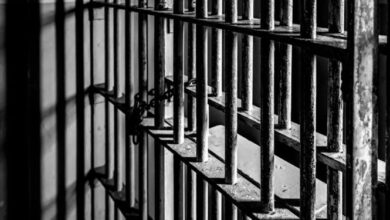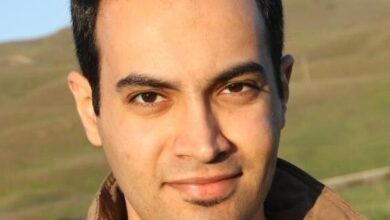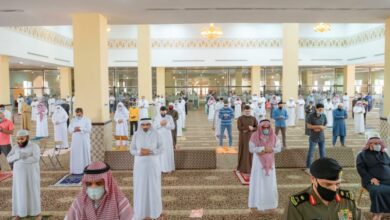Loujain al-Hathloul was released, but other Saudi women activists remain behind bars

After more than 1,000 days in detention, Saudi women’s rights activist Loujain al-Hathloul was released on probation on Wednesday, according to her sister.
Hathloul was arrested in May 2018 in the United Arab Emirates (UAE) and sent to Saudi Arabia, where she faced trial on a loosely worded terror law often used to prosecute activists.
A prominent women’s rights defender who campaigned for women freedom to drive, Hathloul quickly became an international icon symbolising the crackdown on freedoms in Saudi Arabia, with human rights organisations launching campaigns calling for her release.
News of Hathloul’s release on probation has been widely celebrated online, However, many women who campaigned for women’s rights in the kingdom still languish behind bars.
Like Hathloul, many were detained around the time Saudi Arabia lifted its ban on women driving on 24 June 2018.
Human Rights Watch has criticised Saudi authorities for continuing to repress dissidents, including human rights activists and independent clerics.
“Despite major women’s rights reforms in recent years, including an end to travel restrictions, Saudi women still must obtain a male guardian’s approval to get married, leave prison, or obtain certain healthcare,” the group wrote. “Women also continue to face discrimination in relation to marriage, family, divorce and decisions relating to children, including child custody.”
Soon after the news of Hathloul’s release broke, it was revealed that Nouf Abdulaziz also left prison on Wednesday.
Abdulaziz, a blogger, was also detained during the 2018 crackdown on women’s rights activists and was arrested on 6 June that year.
She regularly wrote on her blog about women’s rights, the need for reform and the fate of imprisoned activists in the kingdom.
Her columns, which appeared on her personal blog and Saudi feminist website Noon al-Arabyiah, were considered by Saudi authorities to discuss “sensitive issues”.
The founder of the Saudi-focused human rights organisation Al-Qst, Yahya Assiri, told the Committee to Protect Journalists (CPJ) in 2019 that Abdulaziz was forced to stop writing her columns following pressure from officials.
According to the International Federation for Human Rights (FIDH), Abdulaziz was detained at her home in Riyadh in a police raid and has been held incommunicado ever since.
Al-Qst reported that Abdulaziz was convicted on 18 July 2019 on charges related to her posts on her social media. In June 2019, the organisation also reported that her health had deteriorated after she was allegedly tortured, including being beaten by a heavy cord.
The organisation also stated that Abdulaziz last appeared in front of a criminal court in Riyadh on 25 November.
Hana al-Khamri, a friend of Abdulaziz’s, published a letter from her shortly after she was arrested.
In the letter, Abdulaziz questioned why she was considered a criminal in her home country.
“I was never but a good citizen who loved her country and wished the best for it, a loving daughter and a hardworking student and a devoted worker, who never demeaned, hated or envied anyone,” she wrote.
“Take my life, time, health, all that I own if that is for the benefit of my country, take my present, future, and all that I love if that satisfies you and if it’s for the good of our people, but don’t take away my right to life and to freedom and dignity.
“Don’t take away all that I have dreamed of and striven for just to be a scapegoat for the benefit of another.”
According to Reporters Without Borders, Abdulaziz’s family had received warnings in 2016, from the interior ministry, stating that they were watching her.
Blogger, author and columnist Eman al-Nafjan, who regularly spoke about feminism in Saudi society and contributed opinion pieces to CNN, the Guardian and Foreign Policy, was arrested in May 2018.
Nafjan started a blog in 2018, in which she wrote about her opinions on the campaign to allow women to drive as well as other women’s rights issues, Saudi anti-terror laws and human rights activists in the kingdom.
The mother of three and assistant teacher in linguistics at the University of Riyadh regularly spoke about women’s issues in the kingdom and encouraged her students to openly discuss such matters.
In an article published in 2012 in the Guardian, she wrote: “I don’t believe gender differences are so strongly felt anywhere in the world as in Saudi Arabia.”
In another article posted in 2012, she highlighted that while many athletes were heading to the London Olympics, Saudi women were still banned from sports.
According to the Gulf Centre for Human Rights, Nafjan drove a car publicly in 2013, in defiance of the law at the time, and was subsequently harassed and interrogated.
Saudi blogger and activist Omaima al-Najjar, who was a student of Nafjan’s, wrote about her fearless fight and campaigning for women’s rights in Saudi Arabia.
“She immediately struck me as a progressive woman with strong opinions who cared about women’s rights and did not shy away from stating it publicly … Eman taught us the value of freedom of speech and tolerance, insisting that all of us – whether conservative or liberal – expressed our opinions openly,” she wrote.
According to the CPJ, as of late 2018, Saudi authorities had not publicly disclosed any charges against Nafjan. In March 2019, Human Rights Watch also reported that prosecutors had not specified the charges against her. There have been no updates on her case since.
Human Rights Watch reported that she potentially faces charges of undermining the security and stability of the state, as well as suspicious contact with foreign parties, which could carry a sentence of up to 20 years in prison.
Badawi was known for her work defending human rights and was among the first to bring forward a lawsuit demanding that women be allowed to vote and stand as candidates in municipal elections taking place in 2011.
Badawi also frequently campaigned for the end of the driving ban on women and male guardianship laws, which she believed restricted women’s freedoms.
According to Al-Qst, Badawi was arrested in an armed police raid on her home and is currently held in the Dhahban Central Prison in Jeddah. The rights group also stated that Badawi and other activists have been subjected to “severe and brutal torture and sexual harassment” while detained.
On 19 February 2020, Badawi was called for a secret trial session in the criminal court which international observers were barred from attending. According to the BBC, Badawi appeared in court in November that year. However, no information on her charges has been made public since.
A vocal activist, Nassima al-Sadah campaigned for civil and political rights, women’s rights, as well as the rights of the Shia Muslim minority in the country.
In 2016, she questioned the country’s guardianship laws, which she said didn’t make sense. “Why should an underage boy be the guardian of a woman who is an adult?
“Why isn’t there an age at which a woman becomes an adult, responsible for her decisions and life? Why should there be a man responsible for her life?” she wrote.
Sadah was arrested on 31 July 2018, and has been held in solitary confinement and forbidden from seeing her children or her lawyer for months at a time since.
She has made two court appearances since her arrest. The third hearing, which was due to be held in March 2020, was cancelled due to the outbreak of the Covid-19 pandemic. The BBC reported that she appeared in court in November, but no details on her case have been made public.
A source close to Sadah’s family told Vice that she stood for equal rights for women, despite knowing the dangers she would face as a consequence.
“Essentially, this spirit of struggle is what makes her who she is. I don’t think she can be defined outside of that,” the source said.
According to the report, Sadah had received many threats on Twitter over her activism prior to her arrest.
Zahrani had shared an article written by Abdulaziz, in which the latter volunteered to put people in touch with lawyers and human rights organisations.
According to FIDH, Zahrani was sentenced to five years and eight months by Saudi Arabia’s special criminal court on 28 December 2020 in relation to her defence of women’s rights and activism.
The rights group added that the court has suspended two years and 10 months of the sentence, meaning she would be due to be released in early 2021. However, the partial release will come with a three-year probation period and a five-year travel ban.
“These sentences are in no doubt aiming to punish them for their activism in favour of promoting women’s rights, including women’s right to drive, which was granted by the [crown prince] of Saudi Arabia, Mohammed bin Salman, a few weeks after their arrest,” the rights group stated on its website.
This article was first published on the Middle Easy Eye




